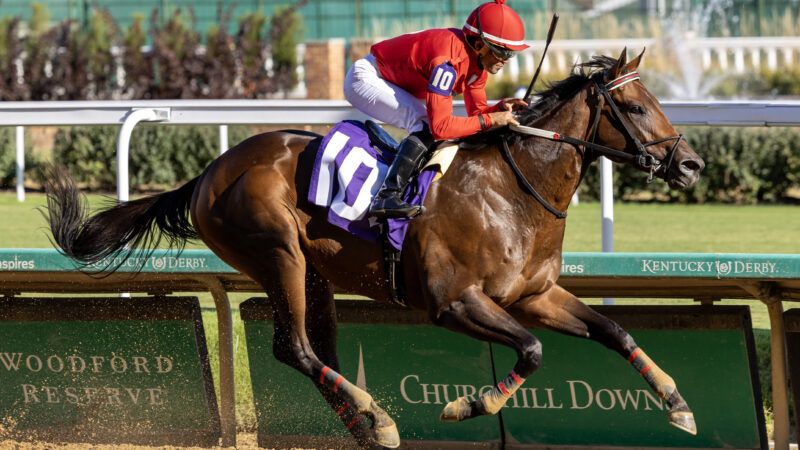Feds Approve $80 Million Budget for 'Private' Horse Racing Regulator
The government should exit the multi-million-dollar business of preventing horse doping.

The Federal Trade Commission (FTC) approved the Horseracing Integrity and Safety Authority's (HISA) $80 million budget last week. Created in 2020 to regulate professional horse racing, HISA exemplifies costly federal overreach.*
The Horseracing Integrity and Safety Act of 2020, which passed with bipartisan support, created and tasked HISA to develop and oversee antidoping, medication control, and racetrack safety programs under the supervision of the FTC.* HISA raises revenue by requiring each state to fund its "proportionate share of the horseracing antidoping and medication control program and the racetrack safety program," per the FTC.
The state racing commissions meet this obligation by imposing "foal registration fees, sales contributions, starter fees, and track fees" on horse racers and breeders, according to the Horseracing Integrity and Safety Act.* While the FTC claims that HISA "serves the goals of the Horseracing Integrity and Safety Act in a prudent and cost-effective manner," the agency's budget says otherwise.
The lion's share of the Authority's approved 2025 budget is not allocated for ensuring racetrack safety ($3 million) or veterinary services for horses ($916,000)—both of which should be privately insured and provided, respectively—but for the $58.6 million antidoping and medication control budget. The budget mostly comprises costs of sample collection and testing "for post-race, out-of-competition, and TCO2 [total carbon dioxide] testing," which the Authority outsources to the Horseracing Integrity and Welfare Unit (HIWU), a division of Drug Free Sport International, a full-service provider in antidoping services.
In 2025, HISA will pay $6.7 million to cover the salaries of 36 full-time HIWU employees who work exclusively for the Authority. Additional expenses include $1 million for travel, $7 million for technology, supplies, and professional services, and $2.8 million for so-called management fees: "the profit amount to HIWU for administering the program….a negotiated amount of 8% of the total expenses incurred for services that HIWU provides directly and 4% for everything else."
HISA allocates $2.4 million to compensate its nine administrative department employees, all of whose salaries "are based on market rates." In addition to office rent and travel expenses, HISA's 2025 budget also provides $420,000 for professional public relations services and $100,000 for "a white paper on the benefits provided by security cameras in shedrows": the walkway between rows of horse stalls in a barn.
The safety of horse races, equine health, and fairness of competitions are all important goals—for the narrow segment of the population that owns and races thoroughbreds. The equine professionals involved in horseracing and breeding should be left to determine and enforce their own standards instead of being subjected to federal regulation of dubious constitutionality.*
*CORRECTION: The original version of this article misstated the funding mechanism for the Horseracing Integrity and Safety Authority (HISA). The article has been amended in several places to clarify that the Authority is not taxpayer-funded.


Show Comments (15)